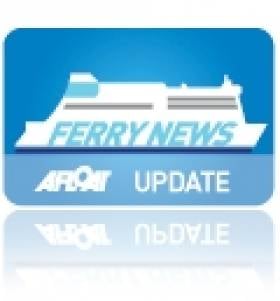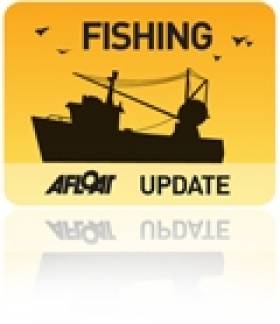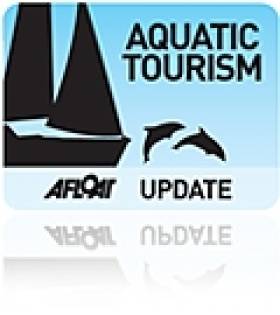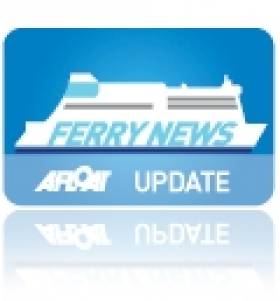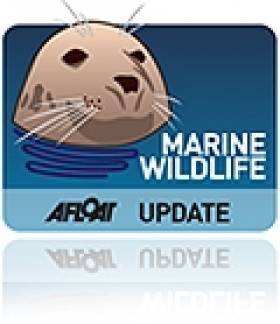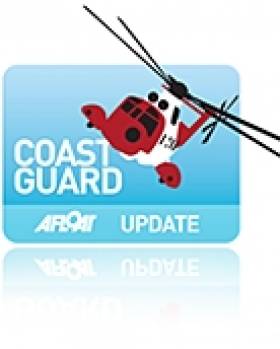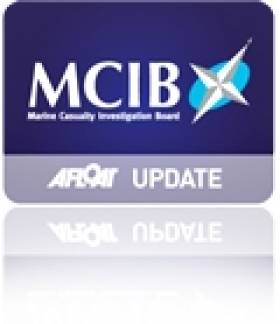Displaying items by tag: Scotland
Body of Irish Fisherman Recovered in Scotland
#NEWS UPDATE - A fisherman whose body was found in a Scottish harbour on St Stephen's Day has been identified as that of a 34-year-old Donegal man, the Belfast Telegraph reports.
Philip Anthony Toland, from Glengad in Inishowen, Co Donegal, was last seen on Christmas Day near the pier at Ullapool harbour in the Scottish Highlands.
As BBC News reports, concerns were raised later that evening and a search was launched involving police, coastguard and RNLI lifeboat teams.
The body was located by a police dive team in the sea near the pier when the search resumed on Monday morning.
It is being speculated that Toland - who has an eight-year-old son - may have slipped and fallen into the water while returning to his boat.
#FERRY NEWS - A cross-border project to develop ferry services for island and remote communities of the Irish and Scottish coastlines has received funding in the sixth round of the European Regional Development Fund (EDRF).
A grant of £450,000 (€540,000) has been allocated to procure the world's first ever hybrid RORO ferry for operation in Scotland, following the completion of the INTERREG funded Small Ferries Project.
The project - a cross-border partnership between Caledonian Maritime Assets Limited and administrations in Ireland and Northern Ireland - produced common designs and procurement strategies for a fleet of small ferries which could be used to serve remote coastal communities.
As previously reported on Afloat.ie, five Scottish coastal routes (and three Irish routes) were examined as part of the Small Ferries Project report published in September last year.
Arising from this, Scotland will see the next step in the project by hosting the world’s first hybrid RORO ferry, designed for use on short crossing routes around the Clyde esturary and Hebrides.
The EDRF funding will also be used to develop the corresponding shore infrastructure to enable the ferry to recharge in port.
The first vessel is expected to enter service in Spring 2013.
Licence Application for Aran Islands Fish Farm 'To Be Lodged in January'
#FISHING - The licence application for a proposed new deep-sea fish farm in the Aran Islands is expected to be lodged in January.
As previously reported on Afloat.ie, Bord Iascaigh Mhara's (BIM) planned 15,000-tonne organic salmon farm off Inis Oírr would be the largest of its kind in Europe, and would create hundreds of jobs in the area.
Commenting on the plans, Galway West Senator Fidelma Healy Eames said it was "a major opportunity for Galway and would represent a very significant economic boost for our coastal communities."
She added: "Deep sea fish farming has proven to be very economically beneficial in countries such as Norway, Chile and Scotland. It is timely that Ireland would capitalise on our fantastic marine resources as these countries have."
According to Healy Eames, the project is expected to "meet all environmental standards and will be barely visible from 2km away and effectively not visible from land.
"It would take up a negligible amount of inshore fisheries ground in the bay (0.22%) and would not interfere with existing fishing routes or Galway Bay ferry routes."
Ireland Proves Inspiring for Scottish Sail Tourism Guide
#AQUATIC TOURISM - Scotland looks to Ireland for inspiration in growing its sailing tourism industry, a new report shows.
Tourism Intelligence Scotland's comprehensive Sailing Tourism in Scotland guide outlines opportunities for businesses already involved in sailing, as well as those willing to dip a toe into an area with much potential for growth.
Among various case studies, the guide points to the Sail West initiative headed by Donegal County Council, which aims to link the coastlines of Northern Ireland, north west Ireland and Scotland and develop the tourism infrastructure between the regions.
It also notes the initiative's MalinWaters brand, which aims to support tourism businesses with information on the latest products and services, and provide opportunities to share knowledge and best practices.
The Sailing Tourism in Scotland guide is available as a PDF to read or download HERE.
Call for Irish SB3s to Head for Scotland in 2012
#SB3 - As the Dublin Bay Sailing Club SB3 class debates the merits of Saturday versus Sunday club racing with a contracted fleet size next season there has been a call from the North for Irish crews to head to Scotland for a new championships on Loch Fyne next year.
There has been a great deal of effort put into developing the Laser SB3 class on the west coast of Scotland, not all of its has been successful to date.
But there a number of boats and crew committed to racing on the upper clyde for evening and weekend racing.
The class has previously failed to become established in Scotland, possibly as a result of high boat prices in the past according to local sources. However, with the availability of great value second hand boats, and the affordability of racing them, it looks set now to be a success, according to class exponent Doug Paton.
For the 2012 Laser SB3 Scottish Championships, the class are going to Loch Fyne to take part in the Scottish Series event. Here, says Doug, the class will benefit from their own one design class start and nine windward-leeward Races over 3 days organised by the Clyde Cruising Club.
Perhaps there is advice Irish crews can give to Scottish counterparts on the initial set up of the fleet. In 2007 the boat exploded on to the scene creating a national fleet of over 100 boats to instantly become the biggest noe design class in the country.
There will be free craning on 2nd & 4th June provided by Macleod Construction. The class will also benefit from free berthing at the new Portavadie Marina. The class has provisionally booked out the bunkhouse accommodation block in the very nice new development at the marina exclusively to the class. As a further draw intend to have class socials held between tarbert an portavadie with the added help of the water taxi service.
For further information contact Scottish SB3 Rep Doug Paton: [email protected]
Stranraer-Belfast Ferry Left Adrift Off Scottish Coast
The Press Association reports that the Stena Navigator was en route from Stranraer to Belfast when both of its engines broke down.
The ferry - carrying 70 passengers and 47 crew - was adrift some four nautical miles west of Corsewall Point lighthouse at the Mull of Galloway.
Clyde Coastguard confirmed that two Svitzer tugs, Norton Cross and Willowgarth, were dispatched to the vessel with the aim of towing it to Belfast, but the ferry managed to get one enging going and propelled itself at half power across the North Channel.
The Navigator arrived in port accompanied by the tugs around 4:30am. No injuries were reported in the incident.
Stranded Whale Dies in Western Scotland
A near-60ft long whale stranded on a beach in Scotland's Western Isles last week has died.
According to The Daily Telegraph, the whale was discovered on South Uist last Monday afternoon.
Despite the best efforts of rescue volunteers from British Divers Marine Life Rescue, the two-tonne creature - believed to be a sei or fin whale - could not be refloated.
Sadly, euthanasia was also ruled out as an option because of the side of the animal.
Death was pronounced on Tuesday, and a post-mortem will now be carried out to find out what may have caused the whale to beach itself.
The stranding comes after two serious incidents in Scotland earlier this year.
A previously reported on Afloat.ie, 25 pilot whales died after a mass stranding at the Kyle of Durness in July, while May saw a lucky escape for another pod of pilot whales at Loch Carman in South Uist.
This time last year 33 pilot whales from a group that almost stranded in Loch Carman were found dead on a beach in Donegal.
Clyde Campaigners Hope for U-Turn on Coastguard Closure Proposal
Scottish campaigners have made their final pleas to save the Clyde coastguard station from closure, the Greenock Telegraph reports.
Under the UK government's plans to streamline Britain's coastguard network, the control centre at Greenock is set to be scrapped with the loss of 31 jobs, while River Clyde rescues will in future be handled from Northern Ireland.
As previously reported on Afloat.ie, Northern Ireland's only dedicated search and rescue centre on Belfast Lough was saved from the chop following a review of plans to reform the Maritime and Coastguard Agency's nationwide network.
A consultation on the propose closure concluded yesterday, and locals join staff, union leaders and politicians in hoping they can persuade the government to give Clyde a reprieve.
"Local knowledge and understanding are vital when dealing with emergency situations." said local MSP Stuart McMillan.
"To remove a committed and fully functioning coastguard service with expert local knowledge would leave a void that could not be filled by an over stretched centre in Belfast."
The Greenock Telegraph has more on the story HERE (registration required).
Body Found on Scottish Beach Believed to Be Missing NI Woman
The body of a woman found washed up on a beach in Scotland's Mull of Kintyre is believed to be that of Northern Irish woman Karen Coyles, who disappeared from her home in Ballycastle, Co Antrim on 11 September.
The Irish Times reports that a tourist found the body yesterday afternoon. It is believed to have been in the water for some time.
A postmortem will be carried out today on the body, the identity of which has yet to be confirmed.
A major search and rescue operation had been launched for Coyles, 47, whose car was found at McQuillan's GAA club where she is captain of the camogie team.
MCIB Report on Sinking of Fishing Vessel 'Ainmire'
A breach in the engine compartment caused the fishing vessel Ainmire to take on water and sink off the coast of Scotland in April last year, according to the official report into the incident.
All crew on board the vessel were transferred safetly to another fishing boat that responded to its distress call, some 30 miles northwest of the Butt of Lewis on the morning of 29 April 2010.
The Marine Casualty Investigation Board (MCIB) report concluded that the failure of a sea water cooling pipe in the engine room was the most likely cause of the flooding, and pointed to the fact that the pipework had not been renewed during the life of the vessel.
It was also noted that the bilge pump and its motors were located under the floor plates in the engine room, and thus were inoperable when the water level had risen in the compartment.
In addition, the MCIB report found that the Ainmire has been operating without a Fishing Vessel Safety Certificate for more than six months at the time of the incident.
Though the owner had submitted a survey application and paid the required fee to the Marine Survey Office (MSO) the previous summer, a communication breakdown resulted in the required survey not being carried out before the expiration of the vessel's previous certification.
The MCIB advised boat owners and operators to be extra vigilant regarding the location of bilge pumps in their vessels.
It also warned that survey applications for certification "may not accommodate all situations", and that the issuing of a recepit is not a guarantee that an application is being dealt with.
The full report is available to download as a PDF from the MCIB website HERE.




























